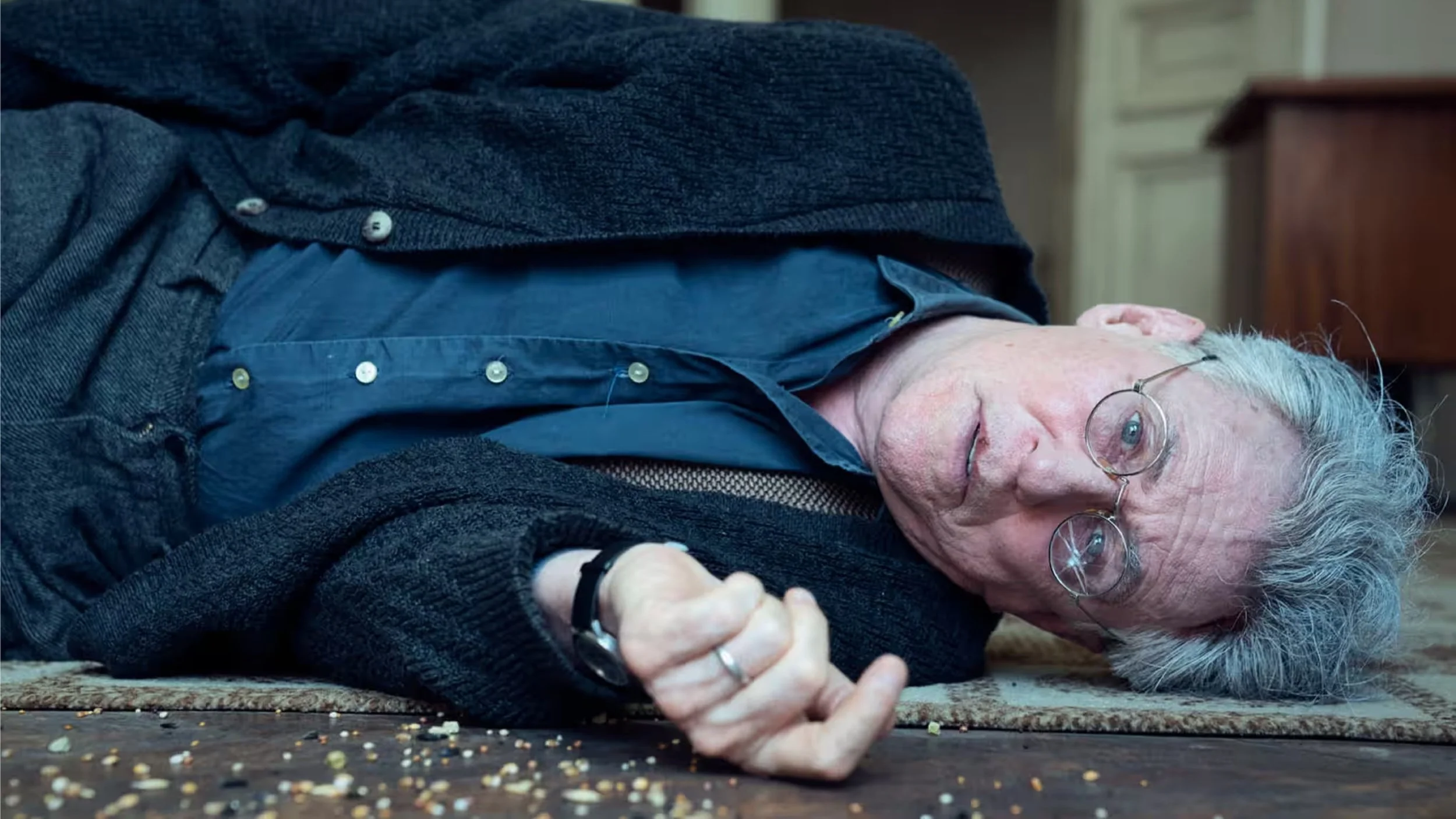Dance First
Good actors star in a rather sketchy account of the life of the playwright and novelist Samuel Beckett.
Few avant-garde works have had the impact of Samuel Beckett's 1953 stage play Waiting for Godot and for that reason people unfamiliar with his work nevertheless know his name. But that hardly makes him a natural choice to become the subject of a biopic. Most admirers of Beckett will know all about him already aided by the many biographies and that format lends itself to incorporating material concerning his works far more readily than is the case with a movie. In the event Neil Forsyth who wrote the screenplay for Dance First minimises details about his writing. The novels are not mentioned at all, the broadcasting of a radio play by the BBC is touched on but All That Fall is not actually named and, when it comes to the pieces for the stage, many are passed over totally. You can't make a film about Beckett without some references to Godot but the only play shown being performed is 1963’s Play which is represented by the very briefest of extracts.
The chosen approach is accordingly very much centred on Beckett’s personal life with just occasional comments on his writing methods (these come up mainly in conversations with another author, James Joyce, who employed the young Beckett in the days when Finnegan’s Wake was in need of translation for publication). However, it may be the fanciful elements in Beckett’s work that have encouraged Forsyth to adopt an odd non-naturalistic structure for the film even though what then unfolds are a series of titled sections that explore Beckett’s life in chronological order. What Forsyth does is to offer a preface in Stockholm in 1969 when Beckett was the recipient of the Nobel Prize for Literature which, ironically, he did not welcome. In the film we see him making a highly stylised escape from the ceremony which sees him emerge through a tunnel into a place where he comes face-to-face with himself. The two Samuel Becketts, not always sharing the same views, talk together and look back on his life. Their discussion centres on deciding who in his life should be regarded as a suitable donee of the Nobel Prize funds that he now wishes to give away. Each candidate is considered in turn and qualifies because Beckett feels guilty about how he treated them. They include his mother (then in an institution), Joyce’s schizophrenic daughter who wanted to marry him, a close friend of his, the writer Alfred Péron, and the two women who came to play key roles in his life, Suzanne Dechevaux-Dumesnil whom he married and Barbara Bray whom he first encountered at the BBC and with whom he had a long-term relationship much to Suzanne's dismay.
For much of the film’s running time the scenes with the two Samuel Becketts top and tail each of the sections which has sense of a kind. However, there is little gain from it and it comes to feel rather daft when, having once come up out of place in the middle of a section, the device of the double is then extended into the film’s later scenes set in the 1980s (for that matter how can Alfred Péron be a contender for the money since he had died in 1945?). The other main stylisation is the equally odd decision to photograph most of the film in black-and-white but to turn to colour for Beckett’s last years. It is also rather distracting to find the soundtrack incorporating snippets of familiar classical music which are heard from time to time.
James Marsh, the director here, was once best known for his documentaries but then had a hit with another bio-pic, 2014’s The Theory of Everything. But, even if the first of the headed chapters, one focused on Beckett's mother, is notably stilted in delivery, Marsh is tied to what Forsyth has given him. Nevertheless, this is for the most part a well acted film: Gabriel Byrne as Beckett takes over from Fionn O’Shea who plays him when younger, Léonie Lojkine and Sandrine Bonnaire share the role of his wife, Aiden Gillen plays Joyce and Maxine Peake has the role of Barbara Bray. Their performances help and the film’s lean 100 minutes pass quickly. But, if for some like myself with a limited knowledge about Beckett’s life, Dance First is usefully informative, the attempt to survey the whole life renders everything too sketchy. The film may lack body but it seeks to take in Beckett’s early days in Dublin, his escape to France, his involvement during the war in the French Resistance and then the post-war fame and his relationships with Suzanne and with Barbara Bray. A more detailed work concentrating on Beckett and the two women might well have gained in depth and provided a weight that is missing here. Consequently, this emerges as a film that is less than worthy of its cast, but there are certainly far worse films around and, if an outline of Samuel Beckett's life is something that appeals to you, you will probably be prepared to make light of the film’s weaknesses and come away not displeased.
MANSEL STIMPSON
Cast: Gabriel Byrne, Aidan Gillen, Sandrine Bonnaire, Maxine Peake, Fionn O’Shea, Léonie Lojkine, Gráinne Good, Robert Aramayo, Bronagh Gallagher, Lisa Dwyer Hogg, Caleb Johnston-Miller.
Dir James Marsh, Pro Michael Livingstone and Tom Thostrup, Screenplay Neil Forsyth, Ph Antonio Paladino, Pro Des Damien Creagh, Ed David Charap, Costumes Györgyi Szakács.
Proton Cinema/2LE Media/Film Constellation/Sky Arts/Umedia-Sky Original Films.
100 mins. USA. 2023. UK Rel: 3 November 2023. Cert. 12A.


